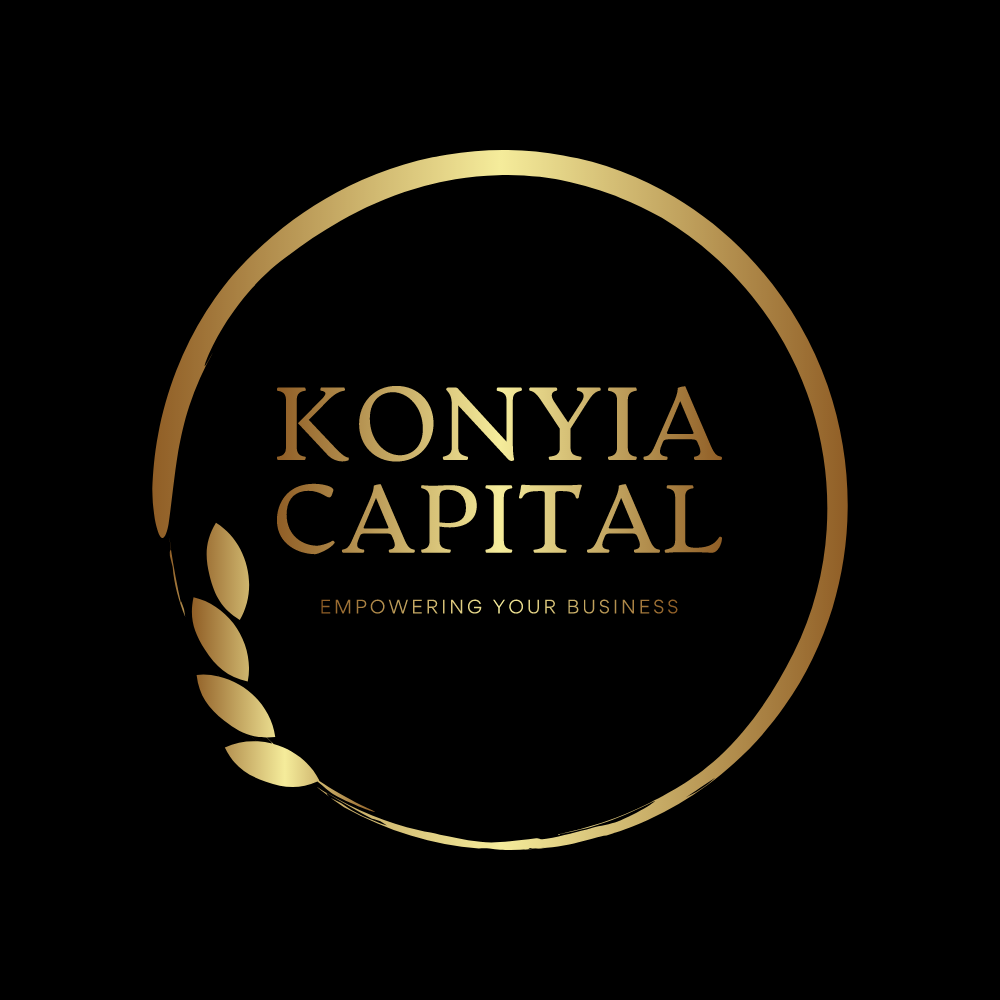Embarking on a new business venture is an exhilarating journey, but it’s also one that requires a solid financial footing. Securing the best ways to fund a new business is not just about obtaining capital; it’s about choosing the right type of funding that aligns with your business goals and growth trajectory. From traditional bank loans to innovative crowdfunding platforms, the options are numerous, and each comes with its own set of benefits and considerations.
At Konyia Capital, we specialize in guiding entrepreneurs through the myriad of financing possibilities, helping you make informed decisions that pave the way for a prosperous future. We understand that every business is unique, and therefore, requires a tailored approach to funding. That’s why we offer personalized service to match your business with the most suitable funding solutions on the market.
Unlock Your Business Potential Today with Konyia Capital! Let’s Fuel Your Success Together – Apply Now!
As you delve into the subsequent sections, you’ll gain strategic insights into various funding mechanisms, from equity investments to debt financing and beyond. Each funding pathway has its own set of implications for your business structure, ownership, and financial flexibility. With the right financial partner and the knowledge of how to leverage the available funding sources, your new business venture can thrive in the competitive marketplace.
Understanding Different Types of Business Financing

Differentiating between the types of business financing available is crucial for any entrepreneur. Broadly speaking, financing can be categorized into two main types: equity financing and debt financing. Equity financing involves selling a portion of your business to investors in exchange for capital. This may include attracting venture capitalists or angel investors who provide funding for potential high-growth companies. On the other hand, debt financing means borrowing money that must be paid back over time, typically with interest, and includes traditional bank loans, credit lines, and SBA loans.
Beyond equity and debt financing, there are other creative ways to fund your business. Grants are an attractive option as they do not require repayment, although they can be highly competitive and often have stringent requirements. Crowdfunding has also emerged as a popular method, allowing businesses to raise small amounts of money from a large number of people, usually via online platforms. This method not only secures funds but also creates a base of supporters who are invested in the success of the business.
Each funding type comes with its own set of advantages and drawbacks. Equity financing, for instance, may dilute your ownership but doesn’t put your business in debt. Debt financing keeps your ownership intact but adds the pressure of repayment schedules. Grants require no repayment but might limit the scope of your business activities, and crowdfunding can be an all-or-nothing venture that demands a compelling pitch to prospective backers.
Understanding these different financing types is the first step in determining which one aligns with your business’s needs, risk tolerance, and long-term objectives. It’s essential to consider not just the immediate influx of cash but also the broader impact on your business’s future.
The Role of Personal Savings in Business Funding

For many entrepreneurs, personal savings are the cornerstone of business funding. Using personal savings to finance a new business venture is often referred to as ‘bootstrapping.’ This method has the significant advantage of giving the business owner full control over the financial decisions without the need to answer to investors or lenders. It also avoids interest payments that come with loans or the dilution of ownership that comes with equity financing.
However, bootstrapping can be a double-edged sword. It requires a considerable amount of self-funding, which may not be feasible for everyone. Additionally, it carries the risk of personal financial exposure if the business does not perform as expected. Entrepreneurs must be willing to assume the full financial risk, which can also limit the scale and speed of the business’s growth due to the constraints of available personal funds.
While personal savings are a testament to an entrepreneur’s commitment and belief in their business idea, financial advisors often recommend maintaining a buffer of personal savings for emergencies. Therefore, it’s essential to balance the use of personal savings with the need for financial security. Diversified funding strategies that combine personal savings with other forms of financing can reduce risk and provide a more stable foundation for new business ventures.
To make the most out of personal savings, effective budgeting and cash flow management are key. Careful planning ensures that the funds are allocated efficiently, and the business can continue operating even when facing unforeseen expenses or revenue fluctuations. It’s a strategy that demands discipline and a thorough understanding of one’s financial limits.
Navigating Business Loans and How to Secure Them

Navigating the landscape of business loans can be a complex process, but it’s a critical step for entrepreneurs looking to fund their new ventures. Securing a business loan typically begins with a clear understanding of different loan types and their respective requirements. From traditional bank loans and SBA loans to alternative lenders and microloans, options vary widely in terms of interest rates, repayment terms, and eligibility criteria.
Preparation is key when approaching potential lenders. This means having a robust business plan, a thorough market analysis, and solid financial projections. Lenders will scrutinize your credit history, cash flow, and collateral before approving a loan. Therefore, maintaining a strong credit score and ensuring your financial statements are in order is crucial.
Relationship building also plays an integral role. Establishing a good relationship with a lender can provide not only the necessary funds but also valuable business advice and connections. It’s advisable to start conversations with lenders early, even before the need for a loan arises.
When it comes to the application process, precision and attention to detail can make all the difference. Ensure all documentation is complete and accurate to avoid delays or rejections. It’s also important to understand the terms of the loan fully and assess how they align with your business goals and cash flow management.
Negotiation is another aspect often overlooked by new entrepreneurs. Don’t be afraid to negotiate the terms of your loan. This can include interest rates, repayment schedules, and any additional fees. By demonstrating a strong business case and financial responsibility, you may secure more favorable terms that can ease the burden on your business finances and contribute to long-term success.
Venture Capital and Angel Investors Explained

Understanding the nuances between venture capital (VC) and angel investors is pivotal for entrepreneurs seeking equity financing. Venture capitalists are typically firms that invest substantial sums of money in startups with high-growth potential, in exchange for equity. They not only bring capital but also strategic support, mentorship, and access to a broader network. VCs generally invest in a business with the expectation of a significant return on investment, usually through an eventual exit strategy such as an IPO or acquisition.
Angel investors, on the other hand, are high-net-worth individuals who provide funding for startups at the earliest stages, often when the business is just a concept or in the development phase. These investors are usually experienced entrepreneurs themselves and are inclined to take more personal risks, often investing smaller amounts than VCs. Angel investors may seek equity in the company or convertible debt arrangements.
For startups considering these options, it is essential to recognize that both venture capitalists and angel investors will be interested in the scalability of the business model, the uniqueness of the product or service, and the competence of the founding team. Startups must be prepared for rigorous due diligence processes and to demonstrate a clear path to profitability.
Moreover, securing funding from VCs or angel investors means ceding a portion of ownership and, in some cases, a degree of control over the company. Therefore, it’s imperative to partner with investors who share the vision for the company and with whom a synergistic relationship can be established. Successful partnerships with these investors can lead not only to financial support but also to invaluable guidance and an expanded professional network.
Crowdfunding Your Startup: Benefits and Strategies
Crowdfunding has emerged as a powerful tool for startups looking to raise funds without giving up equity or taking on debt. This method harnesses the collective financial support of a large number of people, typically via online platforms. By presenting your business idea to the masses, you can secure funding from anyone who believes in your vision and is willing to contribute. The benefits are manifold: not only do you raise capital, but you also validate your business idea through market interest and build a community of supporters who can become future customers.
To run a successful crowdfunding campaign, it’s crucial to develop a compelling story around your business that resonates with potential backers. High-quality videos, engaging visuals, and transparent communication about how the funds will be used can significantly boost your chances of success. Offering attractive rewards or incentives to backers often encourages more contributions. Additionally, a strong social media presence and marketing strategy can amplify your campaign’s reach and attract more attention.
However, crowdfunding requires meticulous planning and execution. Setting realistic funding goals, understanding the fees associated with the platform, and having a clear timeline for delivering on promises are all vital components of a well-strategized campaign. Moreover, the ability to handle the increased scrutiny that comes with public exposure is imperative.
To conclude, crowdfunding can be an excellent way to fund a new business, but it demands a precise approach and dedication. If you’re considering crowdfunding as a pathway to launch your startup, Unlock Your Business Potential Today with Konyia Capital! Let’s Fuel Your Success Together – Apply Now!

